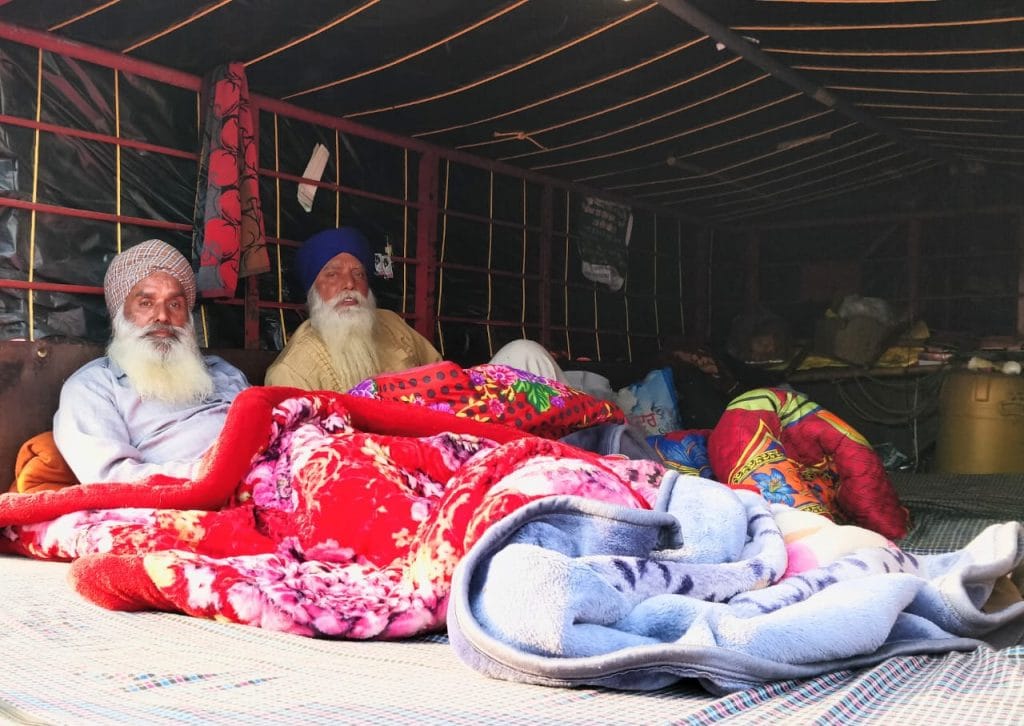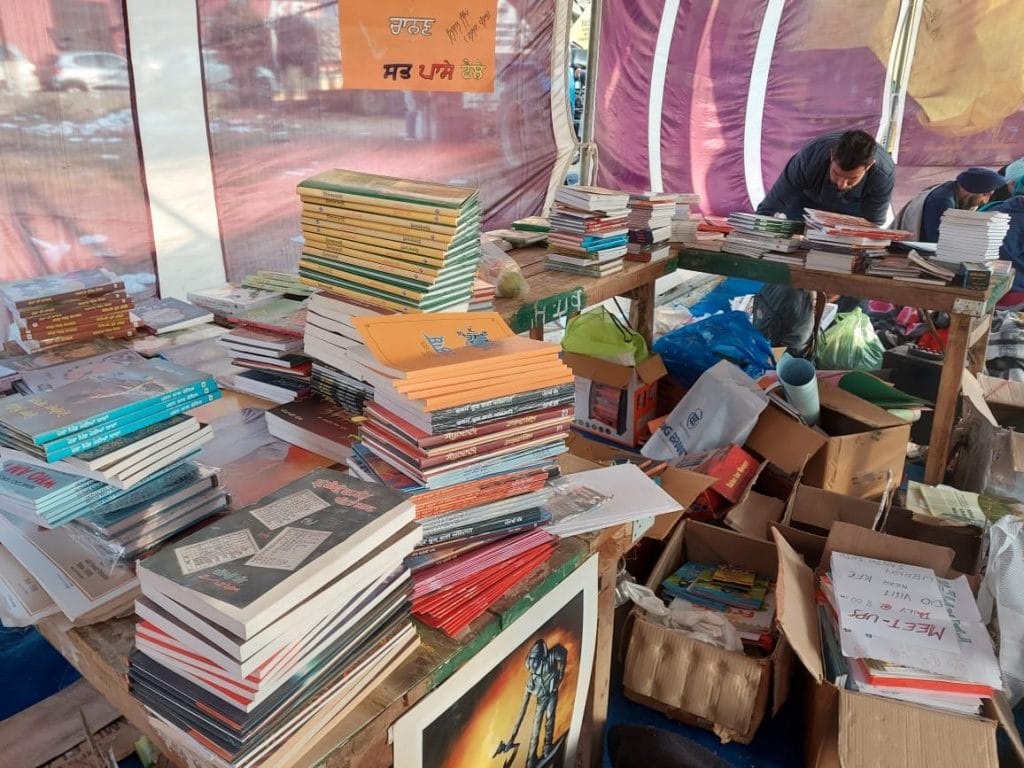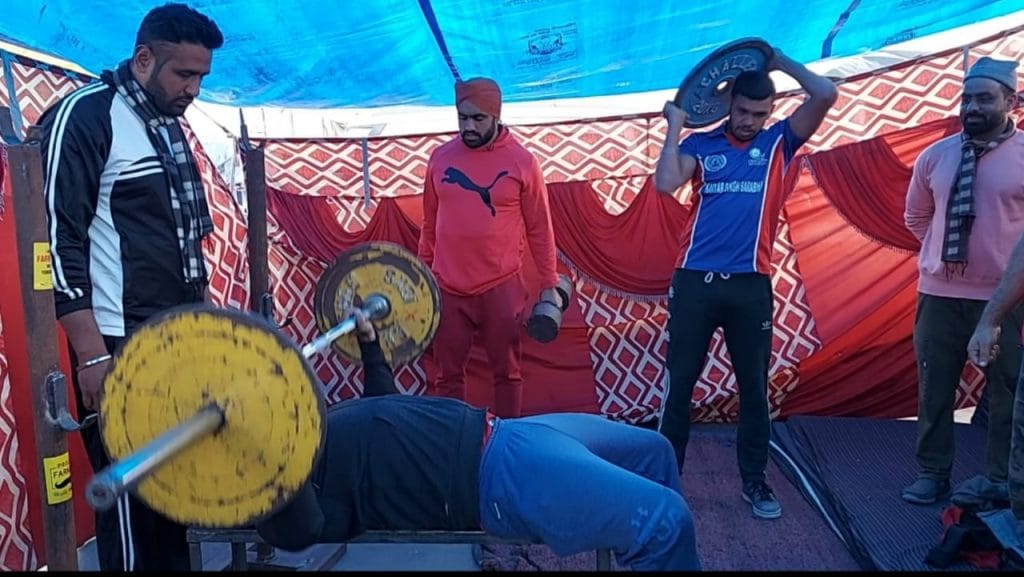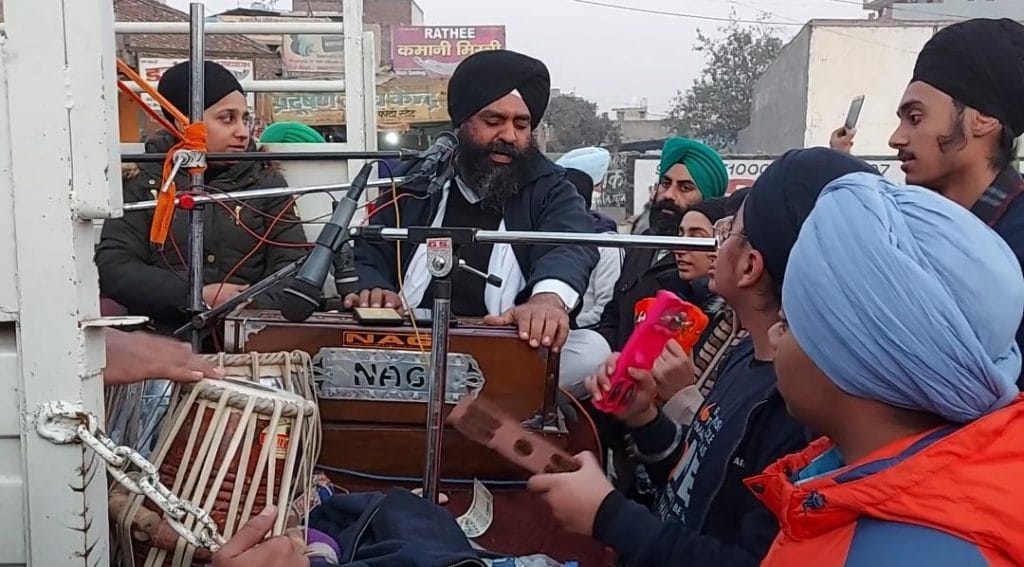New Delhi: A library, school, gurdwara and even a gym — the Singhu border, where thousands of farmers are protesting against the central government’s three farm laws, now resembles a typical Punjabi pind (village). Albeit one that is made up of tractors and tents instead of houses and fields.
With protests entering day 24 and the deadlock with the central government nowhere near an end, it has been clear to those assembled at the Delhi border that they are here for the long haul.
And the farmers came prepared — as much as they could, at least. The mercury in the national capital is dropping with each passing day, but the biting cold hasn’t deterred them from their cause.
Most have been living on trolleys attached to their tractors, But these small make-shift rooms are equipped with minimum necessities, which are barely holding against the onslaught of Delhi’s winter. Some have even installed a television to track the coverage of the protests and give regular updates to their counterparts.

Amid all this, small shops have cropped up on the periphery. They offer daily necessities and even cheap winter clothes to those who may need it.
Shakeer Ahmed, a 24-year-old shopkeeper from Delhi’s Jahangirpuri, shut his shop and opened a stall near the protest site.
For Ahmed, this was his way of doing his bit for the farmers, the profit is just an additional advantage
“In Delhi, I sell 20-25 jackets every day on an average. Here I am selling 100-150 every day! For my farmer brothers, I have reduced the price too. Instead of Rs 500, I sell jackets for Rs 300,” he told ThePrint.
Ahmed has opened multiple roadside jacket shops at the entrance of the protest site, which is indicative of the high demand for winter wear.
Khalsa Aid — an international NGO — is also distributing blankets, thermal innerwear and woollen socks among other things. The lines in front of these ‘blanket langars‘ are endless.
Also read: Bella Ciao to farm laws wapas jao — Anti-Fascist anthem goes Punjabi to mark farmers’ stir
Daily essentials, ambulances and a library
Many college students and local organisations from Punjab have also established stalls at the protest site to offer medical aid, essential supplies and provide security.
One such group is the Patiala-based Sikh Sewa Force, which provides daily essentials such as blankets, socks, soap, medicines, sanitary napkins, oil, mosquito repellants etc, free of cost.
“We open the camp at 4.30 am in the morning and close it around 11 pm. But if there’s a case of an emergency and someone needs something, we are always available to extend our services,” said Ranjit Singh, the founder.
The organisation gets its supplies from Delhi, which are funded through donations.
Singh noted that even though the services were started for farmers, they serve all needy people: “This is the nature of Punjabis that whoever spreads their hand in front of them, they don’t let them go empty-handed. We also help people of nearby slums whenever they demand something that they need and we can provide it.”
This makeshift pind also has a library and community centre, where young people can usually be found.
According to Gurinder Singh, an Oxford University graduate, who is at the forefront of the initiative, the library was to keep young farmers engaged and productive.
“When we came here, we realised that thousands of young farmers have a lot of free time. We wanted to do something productive with it. So we arranged for this common space (chaupal) to initiate some reading, debates and discussions”.
This small centre, which is nothing more than just a tent, also doubles as a sahitya chaupal (studying space) where volunteers teach nearby slum children.
Ambulances and various health check-up centres, run by volunteers from Punjab, is another common sight at the Singhu border.
“We carried out a donation program in our college and are here to do sewa for protesting farmers,” Gurjeet Singh, an MBBS student from Amritsar, told ThePrint.

Also read: Farmers formally reject Modi govt’s proposal to amend farm laws, demand total repeal
Making the best of troubled times
Several others have brought their unique talents to the fore, to serve the cause.
One of them is Labh Singh Thakur, 44, from Kurukshetra, Haryana, who is offering salon services free of cost. Over here, the protesters have been getting their beards shaved and hair cut.
Thakur noted that it was impossible for him to stay at home while the farmers camped at the border. “All of my clients are from farmer families. How could I not come here to support them?” he said.
While the protests disrupted important daily activities on one hand, it has given rise to several tales of innovation and jugaad (hacks) on the other.
Manjot Singh, Aman Talwandi, Gurpreet Singh, Gagan Singh, Pamma Padodhi and Sukha Sakwal — all professional kabaddi players — cannot go a day without training. But training could not come between the larger farmers’ cause; so they brought a total of 350kg heavy equipment with them to the protest site.
They now have an open-air ‘gym’ to service them so that they can work out and train while protesting.
“We work out here twice a day for 90 minutes,” Talwandi, one of the players, told ThePrint.

Also read: BKU (Ugrahan) — the outlier kisan union that the farmers’ protest cannot do without
Kirtans and bhajans to keep morale high
Songs, bhajans and kirtans have also become an important part of these farmers’ lives. When they are not participating in assemblies or discussions, a large number of them form groups to sing shabd (devotional songs). Several farmers ThePrint spoke to said these gatherings helped keep their spirits up.
Another way the farmers have been keeping their morale high is by engaging in sewa. Some Sikh groups from Delhi also visit the protest site everyday to do sewa and kirtan.
One such group is the Bhagat Singh Park Gurudwara Committee.
“We come here, prepare langar (communal meals) and do sewa from ‘dasvandh‘ (a Sikh practice which refers to donating one-tenth of one’s earning for service),” Satbir Singh, president of the committee, told ThePrint.
Other than the kirtans through the day, an educational movie on the history of Sikhism or on India is screened every night, which the protesters watch after langar.
Small and informative nukkad natak (street plays) are also performed by student groups regularly.

Also read: BJP farmer leaders caution govt against branding protesters Khalistanis, ‘tukde tukde gang’







If only our politicians were so resolute to implement their election promises.
Amazing! God grant them success.
It looks like Punjab and Haryana farmers are heavily dependant on MSP and govt subsidies; unlike farmers of other states. Govt should consider the benefits of all the farmers; not just a small group of vocal members from these 2 states while taking any decision on these laws
Hats off to their spirit! May they succeed!